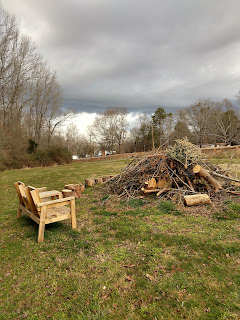Love Birds: A Sonnet
One of my favorite community events recently has been Poetry Night at Mountain Goat, a local coffee + beer + bike + gear shop with a passion for building community and providing inner-city kids with Great Outdoor Adventure Trips (GOAT). Not only does it encourage me to write, but I have found a tribe of poets that is truly exceptional.
This month, I got to teach a little pre-event workshop on sonnets before the Love and Heartbreak themed Poetry Night. We geeked out a bit on the history and structure of the sonnet. Truly, the writing of these is a centuries-old word game with variations depending on whether you wish to play according to Petrarch's or Shakespeare's house rules, or if you prefer more modern anti-rules.
In preparing to teach, a question that John Frederick Nims, author of my college poetry textbook Western Winds, 3rd edition, asked stood out to me:
"Suppose one lives a chaotic life, or lives in a chaotic age that has little sense of form. Is it then more natural to write formless poetry? Or do you think that the more disorder artists feel around them, the more obligation they have to create what order they can?"
This question intrigued me as I traced through the centuries noting the progressions, pauses, playful experiments, and the present divide between ongoing experimentation and a push for the return to formalism in poetry.
W.H. Auden wrote: "The more [a poet] is conscious of an inner disorder and dread, the more value he will place on tidiness in the work as a defense, as if he hopes that through his control of the means of expressing his emotions, the emotions themselves, which he cannot master directly, might be brought to order."
A fascinating thought as seasons of both inner (specific poets, such as Thomas Hardy) and international turmoil (wars, pandemics, etc.) have seemed to fuel a renewal of formalism in poetry over the centuries.
There has, for sure, been a progressive flexibility on the definition of a "sonnet" (perhaps parallel to the popular flexibility of the definition of "marriage"?). Given the pandemic, the rise in mental health struggles, and the compounding political unrest in our world, I am pleased to see an increased pursuit of poetry writing. And I will not be shocked to see a new generation of poets challenging themselves to the game of writing sonnets as they wrestle with the chaos of our age.
Research reveals the power of narrative therapy and specifically poetry writing as individuals work to heal traumas and integrate their brains. There are further benefits discovered in the powerful experience of sharing what we've written within a safe community.
Which brings me back to Poetry Night. This particular poem started with an image as I walked our front field and saw more than a dozen birds flush out of the burn pile.
Since I was teaching a workshop on sonnets and it had been since college that I had written one, I challenged myself to compose a love-themed sonnet in iambic pentameter (five sets of unstressed-stressed syllables per line) following the Petrarchan rhyme scheme (abba abba cddc ee). It was a three-day process. But I must admit, greater than winning the daily Wordle, there was a deep sense of satisfaction in successfully completing this word game.
I hope you'll enjoy my sonnet "Love Birds." And then I hope you'll pick up your own pencil and try this centuries-old literary challenge for yourself.
Love Birds
The love birds build their nest in pile of brush --
the remnants of an awful winter storm.
They only wish to keep each other warm,
tweet-flutter family plans, chirp-whistle mush.
The new year comes, we've not been in a rush
our Christmas Fraser fir to unadorn,
so slowly drag its drying, empty form...
and toss it 'top the pile. When love birds flush,
we sigh, amend our plans to cuddle by bon fire --
which now will be postponed 'til April/May
when young have hatched and finally flown away.
But love is patient to fulfill desire:
In time our fire kindles, blazes, thrives;
but first, twixt branches nestled, love survives.

